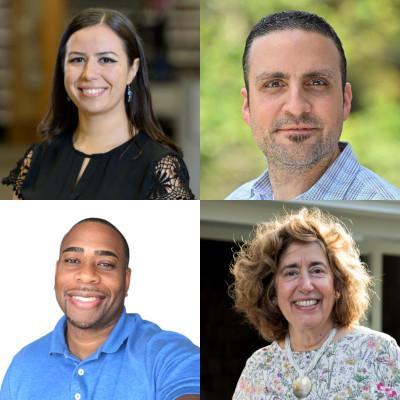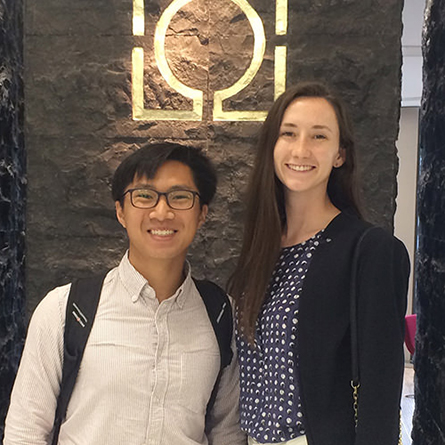
U.S. Department of Education grant supports new Foreign Language Internship Program
Connecticut College has received a two-year, $165,286 grant from the U.S. Department of Education’s Undergraduate International Studies and Foreign Language Program to establish an undergraduate Foreign Language Internship Program to provide students with the strong language and intercultural skills needed to succeed in an increasingly globalized employment landscape.
The new initiative builds on Conn’s robust world language and international studies curriculum and enhances its innovative four-year career program, which provides every student with an educational award of up to $3,000 for a career-related internship and helps students connect their liberal arts majors to professional opportunities and graduate study.
The Foreign Language Internship Program will expand opportunities for students studying Arabic, Chinese/Mandarin, French, German, Hebrew, Italian, Japanese, Russian and Spanish to apply their second language knowledge and skills in experiential settings through high-quality summer internships linked to their specific fields of interest. The initiative is designed to increase the number of students pursuing global internships, expand students’ world language capacities and cultural mastery and improve students’ career-readiness by providing tailored opportunities to put academic training into practice in linguistically and culturally diverse U.S. and non-U.S. contexts.
“Working nationally or abroad on concrete tasks in languages other than English exposes students to cultural perspectives, values and practices that may be different from their own; enhances capacity for intercultural collaboration; and expands the way students view themselves and the world,” said Amy Dooling, associate dean of global initiatives, director of The Walter Commons for Global Study and Engagement and professor of Chinese at the College.
Through the program, a global Islamic studies major might assist at a local agency that supports newly resettled refugees in Connecticut, a government major might intern at the United Nations Relief and Works Agency, a Spanish learner studying public health might assist at a women’s health clinic in the U.S., and a student of Russian interested in education might work at the U.S. Department of Education’s International and Foreign Language Education office or spend the summer at an elementary school in Moscow, for example.
“Experiential off-campus learning encourages students to bridge classwork and work in the world, and to develop the capacity to link knowledge to practice,” Dooling said. “Our graduates need to be equipped with both the intellectual and practical tools to respond actively and ethically to the critical problems of the world today. That requires both rigorous training in the languages, cultures and societies of regions within and beyond the U.S., and opportunities to test and hone these tools in the ‘rehearsal space’ that immersive and hands-on internships can provide.”
The grant will also support curricular development in the languages. Participating faculty will be designing or redesigning courses to help students acquire language proficiency for professional contexts. Faculty ideas for courses include “French for the Workplace,” “Scientific Terminology from Ancient Greek and Latin,” “Spanish Interpretation and Translation for the Professions,” and “The Culture of Work in the German-speaking World.”
The Foreign Language Internship program builds on the success of Connections, the College’s reinvention of the liberal arts, which recognizes the importance of expanding the linguistic expertise and global understanding for today’s students, and continues a strong tradition of excellence in world language education at Conn. Last spring, the College opened The Otto and Fran Walter Commons for Global Study and Engagement, a vibrant hub for global learning that unites core elements of the College’s global education—language study, research abroad, study away, public engagement, globally focused courses, and co-curricular programs—with opportunities for local and global engagement, and ensures every student can integrate a global perspective into their four-year experience.
This $277,446 program is 60 percent federally funded and 40 percent funded with a cost share from Connecticut College.

